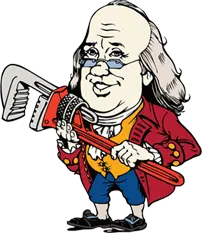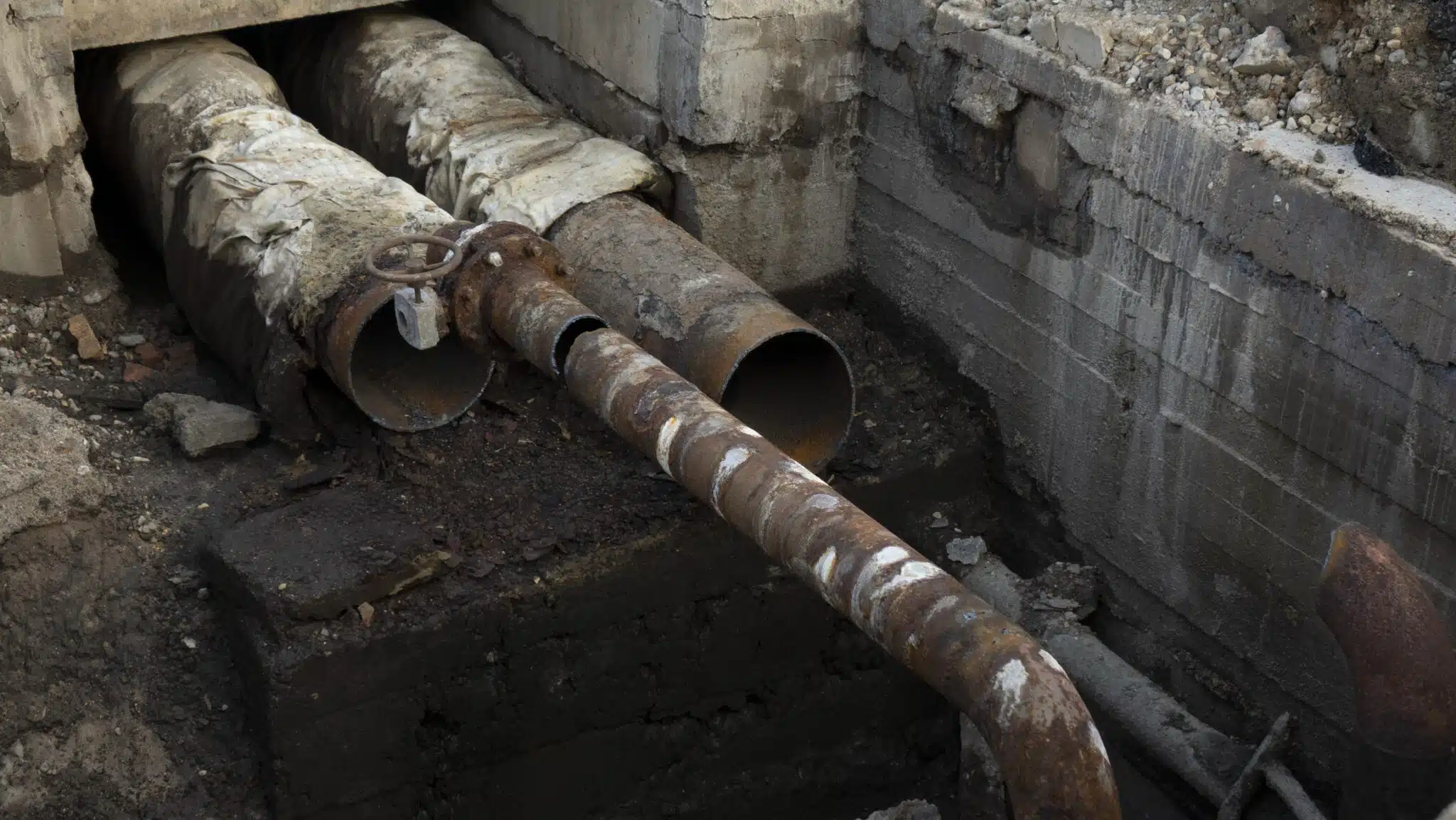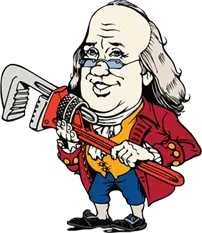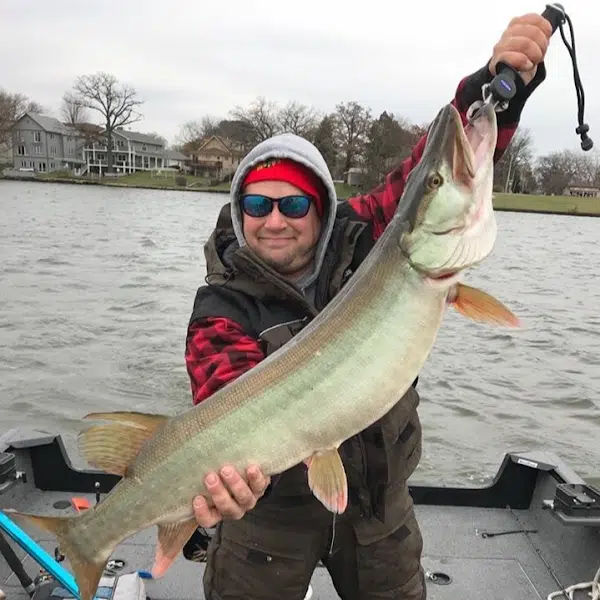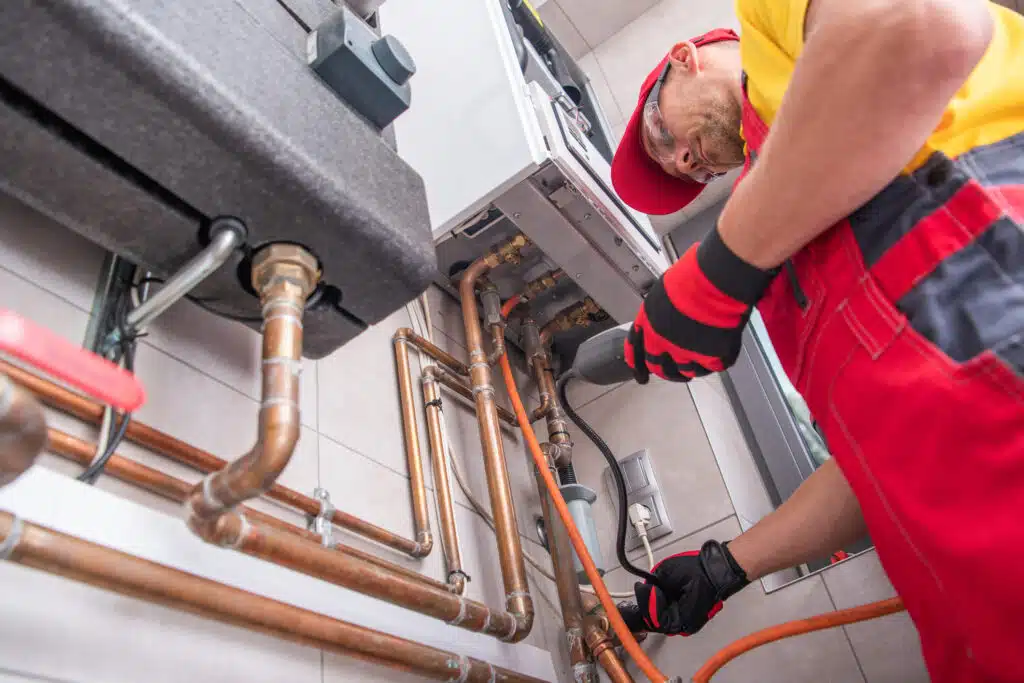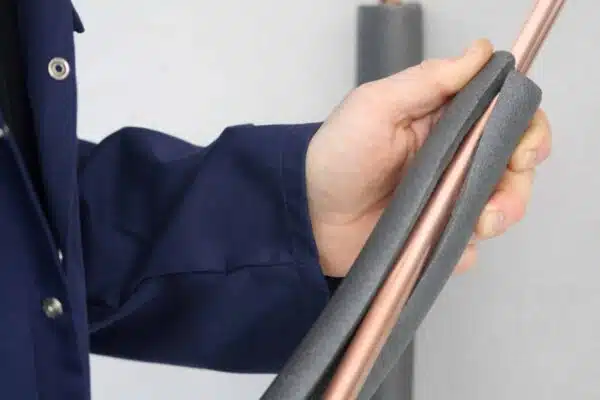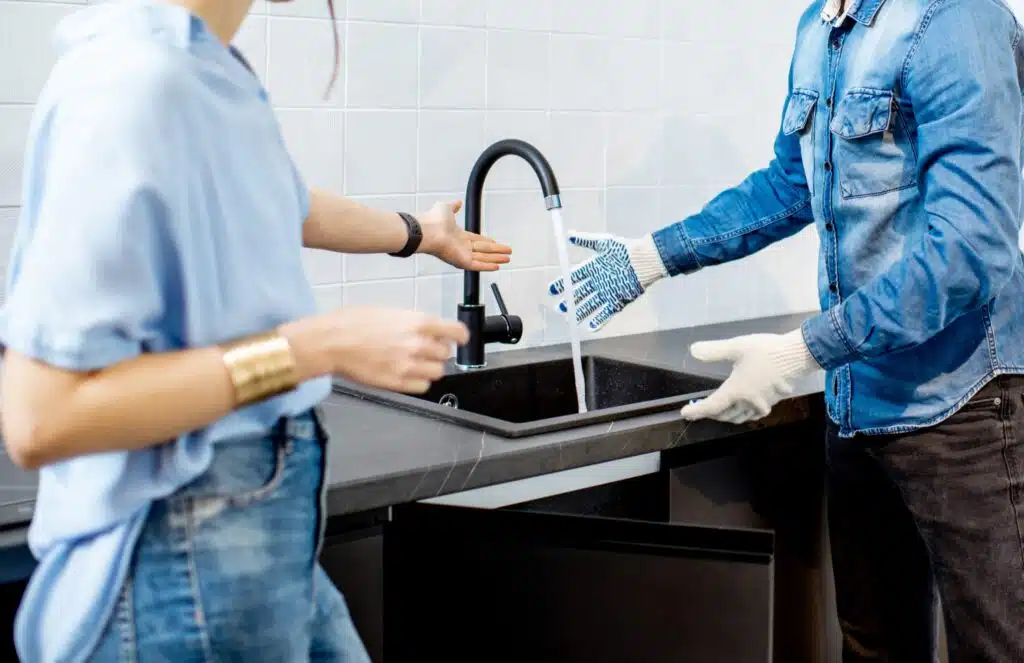Pipe corrosion happens when metals break down because of reactions with things like moisture or oxygen. Winter storms can make it worse. The cold causes temperature swings that stress pipes, more water flows from bursts, and de-icing chemicals speed up the damage. Regular maintenance and quick repairs can help prevent big problems.
Understanding Pipe Corrosion and Its Effects
Pipe corrosion isn’t just a small problem—it’s a serious issue that can harm your plumbing system.
But what exactly causes metal pipes to break down? It happens when they react with elements like oxygen and moisture.
Over time, this weakens the pipes, leading to leaks, bursts, or even system failure.
Cold winters in places like Lancaster, PA, and Harrisburg, PA, make this issue even worse.
Changing temperatures put extra stress on metal pipes, which can cause them to deteriorate faster.
In some cases, external factors like environmental elements may also speed up this process.
This problem is especially common in older neighborhoods, where aging pipes are widespread.
Corroded pipes can cause brown water, low water pressure, and frequent leaks, which lead to expensive repairs if not addressed promptly.
In short, catching pipe corrosion early is key to keeping your plumbing system functioning properly—and during the winter months, early detection becomes even more critical.
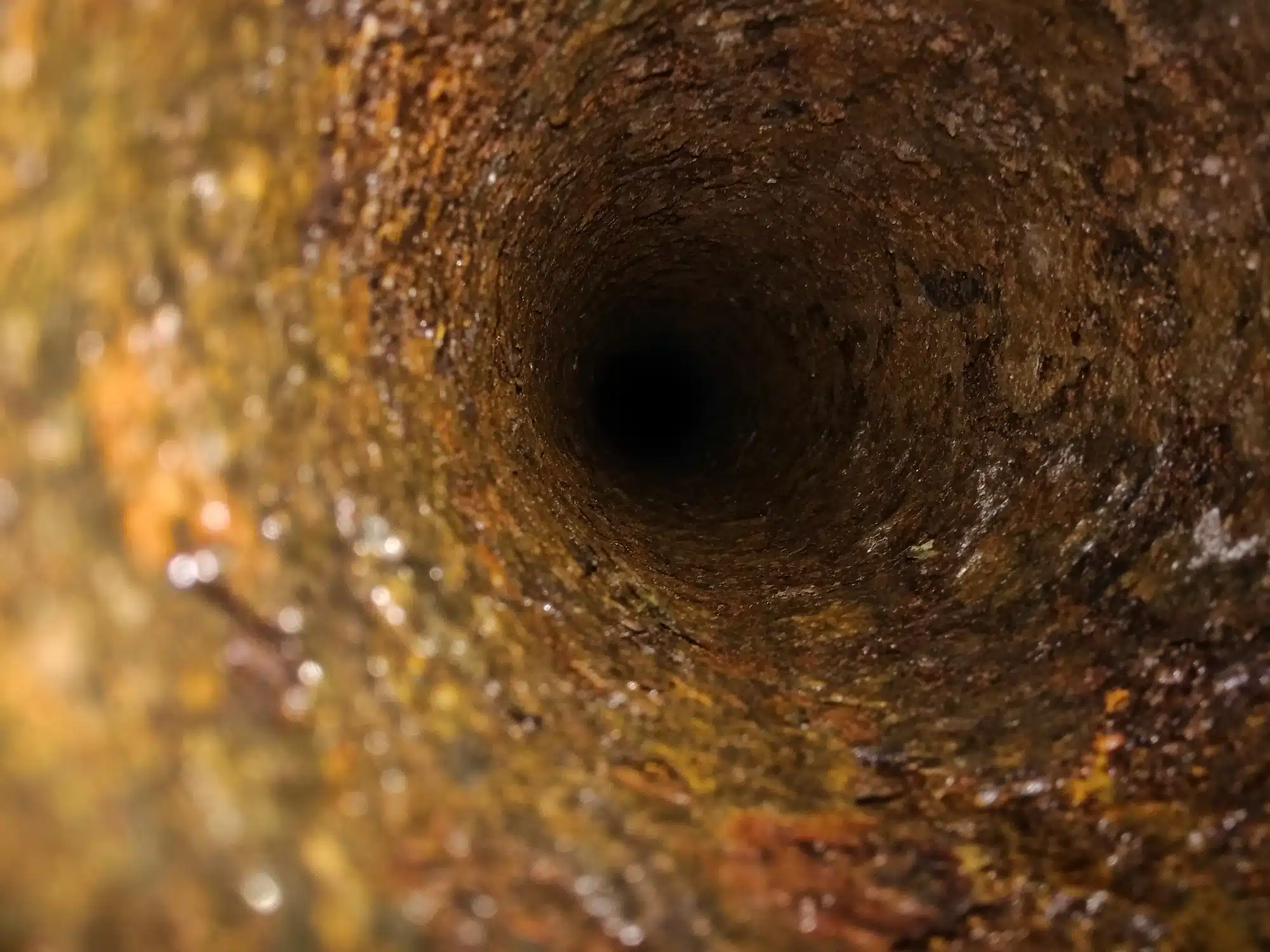
Why Pipes Corrode
Pipe corrosion doesn’t happen overnight.
It builds up over time because of different problems that weaken your plumbing.
One big cause is pH imbalance.
If the water is too acidic or too alkaline, it reacts with the metal pipes and breaks them down.
This reaction damages the thin layer that usually protects metal, leaving it open to rust and corrosion.
Another issue is high water flow, especially in old systems.
When water moves too fast or carries grit, it scrapes the inside of the pipes.
This wears them down and exposes the raw metal, which accelerates pipe corrosion and can lead to leaks or major damage.
Chemical drain cleaners are another hidden cause.
While they clear clogs, they can also eat away at pipe surfaces.
Over time, using these cleaners weakens pipes and creates cracks, which can eventually lead to failure.
These problems are often connected, and each one makes the others worse.
Regular plumbing checkups by experts like Benjamin Franklin Plumbing of Lancaster can help you avoid issues related to pipe corrosion and keep your system working efficiently in Lancaster and Harrisburg, PA.
How Winter Storms Make Pipe Corrosion Worse
Winter storms don’t just bring snow and ice—they can do serious damage to your pipes, especially by speeding up oxidation and rust.
One big reason? Temperature changes. When it’s freezing one moment and thawing the next, pipes expand and shrink.
This movement can damage the thin, protective layers on metal pipes.
Once these layers are broken, the pipes start to wear down faster.
Another issue during winter storms is burst pipes and faster water flow.
When a pipe bursts, the water pressure goes crazy, sending sediment and debris rushing through the pipes.
This rough flow scratches and damages the inside of your pipes, leading to tiny cracks.
These cracks make it easier for rust and corrosion to take hold and weaken the pipes even more.
Then there’s the problem of salts and de-icing chemicals.
These chemicals, often used to melt ice, can get into the water system and make corrosion much worse.
They act like fuel for rust, speeding up the reaction between metals in your pipes.
For folks in areas like Lancaster, PA, or even Harrisburg, PA—where winter storms hit hard—this can be a big problem for older plumbing systems.
Don’t let winter storms ruin your pipes.
If you think pipe corrosion might be an issue, call Benjamin Franklin Plumbing of Lancaster for trusted, professional help designed to tackle winter’s plumbing problems.
Signs Your Pipes Might Be Damaged After Winter Storms
Winter storms don’t just disrupt daily life—they can quietly damage your plumbing.
Corroded pipes often leave clues, and catching them early can save you from bigger problems later.
One clear sign of pipe corrosion is discolored or metallic-tasting water.
If your tap water looks rusty or tastes strange, your pipes might be breaking down.
This happens when metal particles from degrading pipes mix with your water, changing its look and taste.
Another sign is low water pressure.
Damage within pipes can cause buildup that blocks water flow.
This makes tasks like showering feel like a hassle.
You might also notice frequent leaks or burst pipes.
Weakened pipes are more likely to crack or break, especially in freezing weather.
In areas like Lancaster, PA, and Harrisburg, PA, where aging plumbing systems are common, these issues can escalate quickly if left ignored.
If you spot any of these signs, call Benjamin Franklin Plumbing of Lancaster to inspect and fix your pipes before the problem worsens.
Areas in Lancaster and Harrisburg Where Pipes Are Likely to Corrode
Some parts of Lancaster, PA, and Harrisburg, PA are more likely to experience pipe corrosion because of their older water systems and local conditions.
In older neighborhoods, many pipes are made from materials like galvanized steel or lead. These pipes don’t last as long and tend to rust, especially in winter when weather puts extra stress on them.
In Lancaster, the water is known to be hard—filled with minerals that cause scale buildup inside pipes. This buildup slows water flow and traps moisture against the metal, potentially accelerating the process of pipe corrosion. Combined with older plumbing, this makes corrosion a common issue for homeowners in the area.
In Harrisburg, pipes face issues from sediment-filled water and the use of chlorides in municipal treatments. Chemicals used on roads during winter, like salt and de-icers, may also pose risks if they enter surrounding environments. These factors can lead to leaks, clogs, or other costly plumbing problems over time, underscoring the importance of regular maintenance.
Homeowners in these areas should stay on top of their plumbing upkeep and contact trusted professionals like Benjamin Franklin Plumbing of Lancaster for inspections, repairs, and advice on safeguarding their plumbing systems.
How to Prevent Pipe Corrosion
Stopping pipe corrosion starts with simple steps to protect your plumbing system.
One good option is to install a water treatment system to help address the overall condition of your water, including pH levels.
If your water is too acidic or too alkaline, it can speed up the degradation of older metal pipes.
A treatment system can fix this, helping to reduce unnecessary wear on your plumbing.
Another smart move is to schedule regular plumbing maintenance with a trusted team like Benjamin Franklin Plumbing of Lancaster.
Corrosion often hides until it causes big issues, like leaks or low water pressure.
Routine inspections by professionals can help identify and address small problems before they grow, potentially saving you time and money down the road.
Also, avoid store-bought chemical drain cleaners.
These products often have harsh chemicals that can damage your pipes and make wear worse over time.
Instead, consult a professional plumber to handle clogs and safeguard your plumbing system.
By following these steps, homeowners in Lancaster, PA, and Harrisburg, PA, can extend the life of their plumbing and avoid costly damage caused by pipe corrosion.
How to Address Pipe Corrosion
Fixing or replacing corroded pipes often needs a professional to ensure the job is done safely and will last for years to come.
Small rust spots or tiny leaks, called localized corrosion, may sometimes be addressed with spot repairs.
A plumber might use methods like epoxy lining or replace just the damaged part of the pipe.
This approach works well for minor issues where the damage hasn’t spread.
If the corrosion is widespread or the pipes have weakened, a full pipe replacement is typically the best solution.
In such cases, plumbers often use modern materials like PEX or CPVC piping, which are resistant to rust.
These materials can be an excellent upgrade, especially in areas like Lancaster, PA, where older plumbing systems may corrode more quickly.
Professional cleaning services, such as descaling, can also help reduce pipe corrosion.
These services can remove mineral buildup and smooth out the interior of the pipes, reducing future risks.
However, attempting these tasks on your own isn’t advised—trust the professionals at Benjamin Franklin Plumbing of Harrisburg to inspect your pipes and recommend the best solution.
Don’t delay—ignoring corroded pipes could lead to bursts and costly water damage.
Why Winter Pipe Maintenance Matters
Winter in Lancaster and Harrisburg isn’t just cold – it can impact your plumbing if you’re not careful.
One big issue? Pipes experiencing stress in harsh winter weather.
Regular winter pipe checkups help you avoid potential problems by addressing weak spots before they turn into plumbing emergencies.
In these areas, pipes face constant pressure during the winter.
Wild temperature changes make metal expand and shrink, which can weaken it over time.
On top of that, salts and de-icing chemicals in the groundwater can contribute to issues like pipe corrosion.
Even hard water with lots of minerals can exacerbate problems, leading to concerns like discolored water, leaks, or even pipe damage.
But you can mitigate these risks with the right care.
Plumbers experienced with freezing temperatures and older pipes in the region can identify early signs of trouble.
They’ll inspect critical areas, flush out sediment, and recommend treatments to help protect your pipes.
By taking proactive steps, homeowners in Lancaster and Harrisburg can avoid major issues.
Preparing your plumbing for winter is not just about peace of mind – it helps ensure your home runs smoothly when temperatures drop.
Why You Should Hire an Experienced Plumber in Lancaster and Harrisburg
Dealing with pipe corrosion? Hiring an experienced plumber in Lancaster, PA, and Harrisburg, PA, is essential for addressing this common issue.
Winter storms can damage your plumbing in ways you can’t see, and only trained pros have the skills to find and fix the problem.
One big benefit is their know-how with winter-related pipe problems.
They understand how shifting temperatures strain your pipes and how salts and de-icing chemicals can lead to rust and deterioration.
With their help, you’ll get solutions designed for the challenges of cold weather.
Another perk is the tools and methods they use.
Experienced plumbers rely on advanced equipment that finds corrosion problems without guesswork.
This saves you time, hassle, and ensures that repairs are done correctly and efficiently.
What really makes them stand out is their local expertise.
Plumbers who know Lancaster and Harrisburg understand the unique problems in the area, like older pipes and hard water.
They tailor their fixes to tackle these specific issues, so you can relax knowing your home is in good hands.
For dependable service and years of experience, count on Benjamin Franklin Plumbing of Lancaster.
They’ll provide top-quality care and long-lasting solutions to keep your home safe.
When to Call a Pro for Pipe Corrosion Issues
Spotting pipe corrosion early can save you from big problems and costly repairs.
But when should you bring in a pro?
One major sign is frequent leaks. Leaks happen when damage from corrosion weakens the pipes, making them more likely to fail under normal water pressure.
Another clear sign is discolored water or a metallic taste. This can mean metal from deteriorating pipes is mixing into your water, which not only hurts your plumbing but could also raise concerns about water safety in your home.
Low water pressure is another thing to look out for. Corrosion can cause buildup that blocks water flow, leading to uneven pressure in your home. This is a bigger problem in older neighborhoods like Lancaster, PA, or even across Harrisburg, PA, where aging pipes are more common.
The biggest risk? Ignoring these signs until a pipe bursts and floods your home, turning into a costly disaster.
A quick call to Benjamin Franklin Plumbing of Lancaster can help you fix the problem before it gets worse.
Their team is experienced in addressing pipe corrosion, providing reliable and long-lasting solutions for homeowners.
How to Prevent Pipe Corrosion Long-Term
Pipe corrosion can be a serious issue for homeowners, particularly in regions like Lancaster, PA, and Harrisburg, PA, where older plumbing systems are prevalent.
The good news? There are effective, long-term solutions to safeguard your plumbing and ensure it remains in excellent condition for years to come.
One proven method is to upgrade to corrosion-resistant pipes.
Modern materials, such as PEX or CPVC, provide durability and are less prone to rusting compared to traditional metal options.
These materials perform especially well in challenging conditions, including the harsh winters experienced in these areas.
Another powerful approach is installing a water conditioning system.
The water in cities like Lancaster and Harrisburg is often categorized as hard due to its high mineral concentration.
Hard water can accelerate the deterioration of pipes.
By using a water softener or filtration system, you can reduce mineral buildup, balance pH levels, and combat corrosive elements that threaten your plumbing.
It’s always a good idea to work with a professional plumber to select and properly install the right system for your home.
Finally, prioritize routine maintenance.
Regular pipe inspections, cleanings, and descaling services, performed by a trusted provider like Benjamin Franklin Plumbing of Lancaster, can address minor problems before they escalate.
Ongoing maintenance will not only prolong the life of your pipes but also keep your plumbing functioning optimally throughout the year.
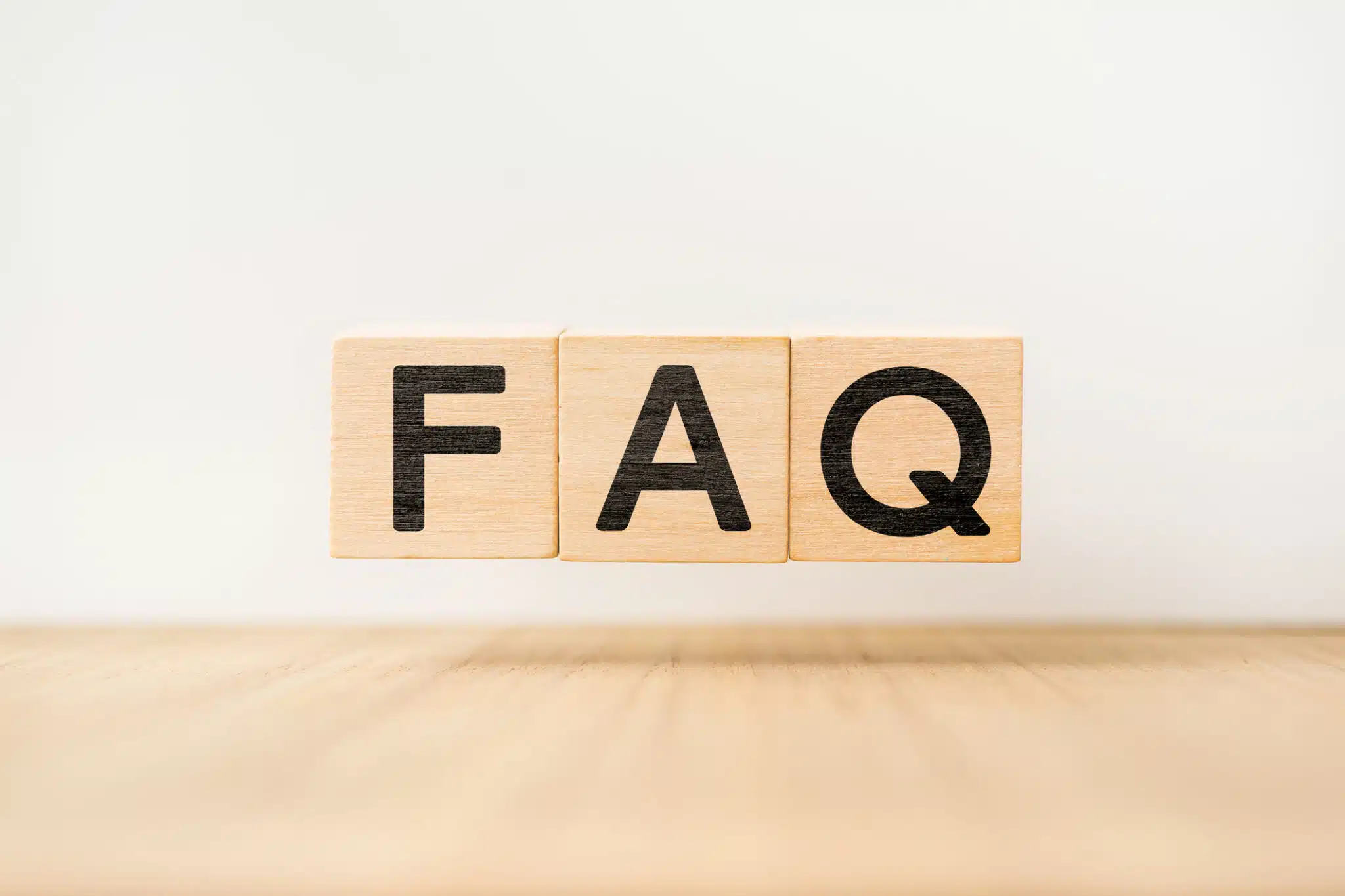
FAQs
What causes pipe corrosion?
Pipe corrosion occurs when metal interacts with elements such as air, water, or chemicals. Over time, this reaction weakens pipes, leading to leaks or breaks.
How do winter storms make pipe corrosion worse?
Winter storms can worsen corrosion by triggering temperature fluctuations and introducing substances like salts or de-icing agents into the environment. These changes may speed up metal degradation, especially in areas like Lancaster, PA.
What are the signs of pipe corrosion in my home?
Watch for water discoloration, a metallic taste, frequent leaks, low water pressure, or visible rust on pipes. These are common indicators of corrosion.
Can you prevent pipe corrosion?
Yes, there are preventative measures you can take. These include using water filters, avoiding harsh chemical cleaners, and scheduling regular plumbing inspections—essential for homeowners in places like Harrisburg, PA, where older plumbing systems are common.
Why do I need a professional to fix pipe corrosion?
A qualified plumber has the skills and equipment to properly diagnose and resolve issues caused by pipe corrosion. Whether it’s cleaning the affected areas, managing buildup, or suggesting replacements, they ensure your plumbing system remains functional and safe.




